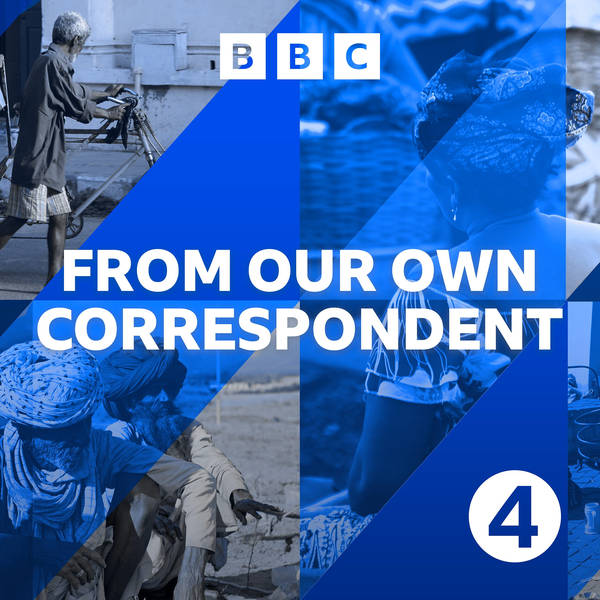
Eric Zemmour: France's new right wing contender
The French political scene has a new kid on the block, or one might say, a new veteran. Eric Zemmour is his name, not one familiar in the UK, but Zemmour has long been well known in his own country as a right-wing television presenter. His controversial pronouncements on race, religion and immigration have in the past got him into legal trouble, but now he appears to be flirting with the idea of standing to be president. Until now, the French far-right scene has been dominated by one political party – indeed you might say, by one family. The Front National was founded nearly fifty years ago by Jean-Marie Le Pen. His daughter Marine then took over its leadership, though she changed the party’s name to “National Rally.” Ms Le Pen had been seen as a serious challenger for the French presidency, in elections to be held next year. Yet some think she’s now being eclipsed by Mr Zemmour. Lucy Williamson went to see him in action:
It looks like Joseph Biden will not be allowed to forget the way US troops departed from Afghanistan, leaving the country to fall quickly into Taliban hands again. Rightly or wrongly, it’s likely to be a millstone round the president’s neck, should Mr Biden seek re-election in three years’ time. That is a very different state of affairs to the way Afghanistan is talked about in Russia these days, or rather not talked about. Military parades there tend to focus on the Soviet Union’s victory in World War Two, while some politicians like to boast about more a more recent conflict, Russia’s invasion and occupation of Crimea in 2014. Far less is said about how Soviet tanks rolled into Afghanistan in 1979, only for troops to pull out a decade later, defeated and demoralised. And this silence has proved hard for those Russians who served in Afghanistan, or who lost friends and family there. Now, a new exhibition is allowing veterans of the conflict to express through art the trauma they suffered. Francis Scarr went along to see it:
As a health correspondent for the BBC, Tulip Mazumdar has reported on medical problems around the world, and one she has seen plenty of is women suffering miscarriages. It is a loss whose seriousness is often not recognised, with many women suffering a form of grief every bit as serious as when a living person dies. And it’s a common problem too; in the UK, it has been estimated that a quarter of pregnancies are lost. However, knowing all this, and having reported on it for many years, could not have prepared Tulip for the many miscarriages she herself went on to suffer, and which she frankly admits, she is still struggling to come to terms with.
People do sometimes hold funerals for babies who are miscarried or still-born. But whether for a child or an adult, funerals serve many purposes: they allow people to express publicly their grief, in the company of friends and families who are there to support them. They may be an opportunity to look back on the life of the person who died, and to recall what they meant to those who knew them. What you do not expect is for funerals to provide the chance for a quick buck to be made, and yet that’s exactly what happens in parts of eastern Nigeria. And it’s not just funerals, weddings too may be targeted by extortionists, unwilling to allow the proceedings to go ahead, unless they are paid off. It is something Olivia Ndubuisi has seen for herself:
We all need a break now and then, and that might involve a holiday. But is that something you would grant to prisoners? That is exactly what happens in parts of Brazil, where occupants of the country’s jails are given occasional home leave. You might think this sounds absurdly indulgent, the sign of a country that has gone soft on those who break the law. In fact, Brazil’s prisons are notoriously harsh, with assault and murder common. The actual purpose of giving prisoners a break from their sentence is to encourage them not to end up back there, after they’re released, as Andrew Downie discovered.
For details of organisations which offer advice and support with pregnancy related issues, go online to bbc.co.uk/actionline.
